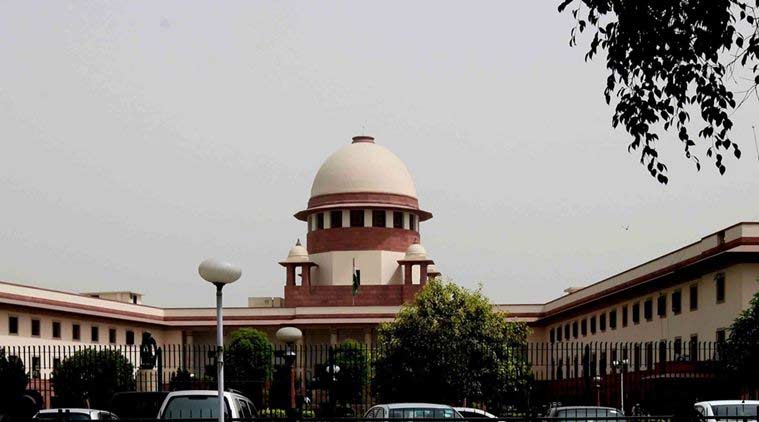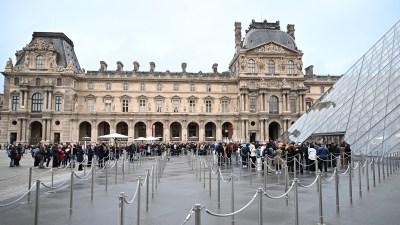A Supreme Court bench hearing the Ayodhya title suit on Wednesday said it will first examine whether the apex court’s 1994 judgment in the M Ismail Faruqui case — that a mosque was not an essential part of the practice of Islam, and hence could be acquired by the state — needs to be sent to a larger bench for reconsideration.
The court ruled out sending the entire title suit to a larger bench, and underlined that it cannot compel the parties involved in the Ramjanmabhoomi-Babri Masjid dispute to arrive at a settlement.

A three-judge bench of Chief Justice of India Dipak Misra and Justices Ahok Bhushan and S Abdul Nazeer said: “After due deliberation, we have thought it appropriate that we should hear Dr (Rajeev) Dhavan, learned senior counsel appearing in one of the appeals on behalf of the appellants, whether the judgment in Dr M Ismail Faruqui requires reconsideration…. We must immediately make it clear that our addressing the said issue shall singularly relate to whether this bench should think the dictum in Dr M Ismail Faruqui…requires reconsideration.”
Story continues below this ad
In that event, the bench said, it “may pass appropriate orders for placing the matter before a five-judge bench for consideration”.
A five-judge Constitution Bench, headed by then CJI M N Venkatchalliah, had in 1994 held, “under the Mohammedan Law applicable in India, title to a mosque can be lost by adverse possession…. If that is the position in law, there can be no reason to hold that a mosque has a unique or special status, higher than that of the places of worship of other religions in secular India to make it immune from acquisition by exercise of the sovereign or prerogative power of the State. A mosque is not an essential part of the practice of the religion of Islam and namaz (prayer) by Muslims can be offered anywhere, even in open.”
Accordingly, the court had then held, “its acquisition is not prohibited by provisions in the Constitution of India.”
On Wednesday, the CJI Misra-led bench also rejected all applications by people seeking to intervene in the case after the parties to the suit opposed all such interventions.
Story continues below this ad
BJP leader Subramanian Swamy, who had also filed an IA, contended that he had originally filed a writ petition seeking enforcement of his fundamental right to worship. Another bench had allowed him to intervene by converting the writ into an IA, he said. But the court said since it had rejected all IAs, it cannot allow Swamy’s application either.
The bench said Swamy’s original writ will stand revived.
The Shia Waqf Board, which has filed a Special Leave Petition, requested that it should also be heard in the matter, but the court said the Board’s petition is yet to come on record, and will be taken up as and when it comes up.
Senior advocate Rajeev Dhavan, who raised the question of the Ismail Faruqui case, submitted that the court will “have to decide what is the concept of mosque to Muslims”. He contended, “If the judgment stands, it is abundantly clear that it will affect the outcome of the case…. Do you take it as gospel that a mosque is not essential to a Muslim? If you do, our nation will be damaged.”
Story continues below this ad
On the question of acquisition of the Babri mosque and surroundings, Dhavan said anything can be acquired if there is a will. “If you want to acquire Tirupati, all you need is the will to do it.” He wondered whether the government would dare acquire the Meenakshi Temple. The court will continue to hear the matter on March 23.

 Supreme Court will continue to hear the matter on March 23.
Supreme Court will continue to hear the matter on March 23.






